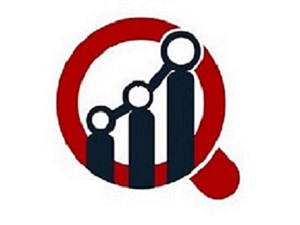
Lithium-ion Battery Recycling Market
The lithium-ion battery recycling market is experiencing significant growth due to the rising demand for efficient and sustainable energy solutions. As the world moves towards greener technologies and renewable energy sources, lithium-ion batteries have become a cornerstone in powering electric vehicles (EVs), consumer electronics, and energy storage systems. This surge in usage has led to an equally critical need for effective recycling methods to manage end-of-life batteries and minimize environmental impact.
[PDF Brochure] Request for Sample Report:
https://www.marketresearchfuture.com/sample_request/10583
Market Overview
Growth Drivers
Several factors are driving the growth of the lithium-ion battery recycling market:
- Environmental Regulations:Governments worldwide are implementing stringent regulations to reduce electronic waste and promote recycling. These regulations are pushing manufacturers and consumers towards recycling solutions.
- Resource Recovery:Recycling lithium-ion batteries allows the recovery of valuable metals such as lithium, cobalt, nickel, and manganese, which can be reused in the production of new batteries. This not only conserves natural resources but also reduces the dependency on mining.
- Economic Viability:The economic benefits of recycling, including reduced production costs and the potential for job creation, are making it an attractive option for companies.
Market Challenges
Despite the growth potential, the market faces several challenges:
- Technological Barriers:Developing efficient and cost-effective recycling technologies remains a significant hurdle.
- Collection and Transportation:Establishing a robust infrastructure for the collection and transportation of used batteries is crucial for efficient recycling.
- Safety Concerns:The handling of lithium-ion batteries, which can be hazardous due to their chemical composition, poses safety challenges during the recycling process.
Technological Advancements in Recycling
Hydrometallurgical Process
The hydrometallurgical process involves the use of aqueous solutions to extract metals from spent batteries. This method is advantageous due to its high metal recovery rates and lower environmental impact compared to traditional pyrometallurgical methods. Innovations in this field are focusing on improving the efficiency of leaching agents and reducing energy consumption.
Buy this Premium Research Report:
https://www.marketresearchfuture.com/checkout?currency=one_user-USD&report_id=10583
Pyrometallurgical Process
Pyrometallurgical recycling involves the use of high temperatures to smelt battery components, recovering metals in the process. While effective, this method is energy-intensive and can produce harmful emissions. Advances in emission control technologies and the development of cleaner energy sources for smelting are making this method more sustainable.
Direct Recycling
Direct recycling techniques aim to recover and reuse battery components without breaking them down into their elemental forms. This method preserves the structural integrity of the active materials, potentially allowing for the direct reuse of cathode and anode materials in new batteries. This approach is gaining traction due to its potential for cost savings and reduced environmental impact.
Key Players in the Market
Several companies are leading the charge in the lithium-ion battery recycling market. These include:
Umicore
A global materials technology company, Umicore is at the forefront of battery recycling. The company employs both pyrometallurgical and hydrometallurgical processes to recover valuable metals from spent batteries.
Retriev Technologies
Retriev Technologies specializes in the recycling of lithium-ion batteries, offering comprehensive solutions that cover collection, transportation, and processing. The company focuses on safety and environmental sustainability in its operations.
Li-Cycle Corp.
Li-Cycle Corp. has developed a proprietary process for recycling lithium-ion batteries that emphasizes high recovery rates and environmental friendliness. Their innovative approach has positioned them as a key player in the market.
Regional Market Analysis
North America
North America is a significant market for lithium-ion battery recycling, driven by the high adoption rate of electric vehicles and stringent environmental regulations. The presence of major recycling companies and supportive government policies are propelling market growth in this region.
Europe
Europe is another leading region in the lithium-ion battery recycling market. The European Union’s aggressive push towards sustainability and the circular economy is fostering advancements in recycling technologies. Countries like Germany, France, and the Netherlands are spearheading these efforts.
Asia-Pacific
The Asia-Pacific region is witnessing rapid growth in the lithium-ion battery recycling market, primarily due to the high production and consumption of batteries in countries like China, Japan, and South Korea. Government initiatives to promote recycling and reduce environmental pollution are driving the market forward.
Browse In-depth Market Research Report:
https://www.marketresearchfuture.com/reports/li-ion-battery-recycling-market-10583
Future Outlook
The future of the lithium-ion battery recycling market looks promising, with several trends poised to shape its trajectory:
Increased Electric Vehicle Adoption
As the adoption of electric vehicles accelerates globally, the volume of end-of-life lithium-ion batteries is expected to rise significantly. This will create a substantial demand for recycling solutions, driving innovation and investment in the sector.
Technological Innovations
Continuous advancements in recycling technologies will enhance the efficiency and cost-effectiveness of recycling processes. The development of automated and AI-driven sorting and processing systems will further streamline operations and reduce labor costs.
Sustainable Practices
The emphasis on sustainability will lead to the adoption of greener practices in the recycling process. This includes the use of renewable energy sources, reduction of hazardous waste, and the implementation of circular economy principles.
Conclusion
The lithium-ion battery recycling market is set for robust growth, driven by environmental regulations, economic benefits, and technological advancements. As the world shifts towards sustainable energy solutions, the importance of effective battery recycling cannot be overstated. Companies and governments alike must continue to innovate and invest in this critical sector to ensure a sustainable future.
Top Trending Reports:
HVDC Converter Station Market Research Report- Forecast 2030
Power Battery Management System Market Research Report – Global Forecast till 2030
Steam Turbine Market Research Report – Global Forecast to 2030
Smart Transformers Market Research Report Forecast to 2030
Gas Insulated Transformer Market Research Report-Global Forecast till 2030
Contact Information:
Contact Information: Market Research Future (part of Wantstats Research and Media Private Limited), 99 Hudson Street, 5Th Floor, New York, New York 10013 United States of America +1 628 258 0071 Email: [email protected] Website: https://www.marketresearchfuture.com
Tags:
Research Newswire, English










